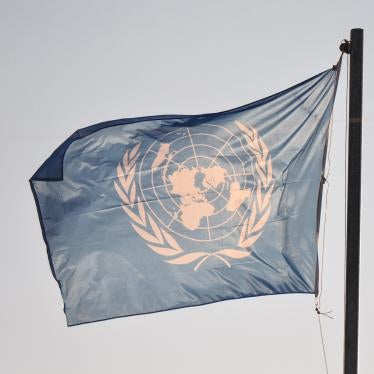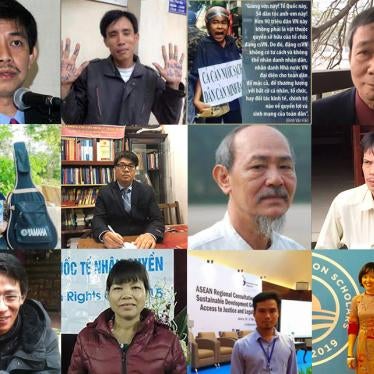Violent acts by non-state groups against the general population for political purposes are abhorrent crimes that, when widespread or systematic, can amount to crimes against humanity. We unequivocally condemn such acts, and extend our solidarity and support to the victims and their families. Governments have a responsibility to protect those within their jurisdiction from extremist attacks, but must ensure that all counterterrorism measures respect human rights.
Nonetheless, countries around the world frequently use counterterrorism measures to restrict rights to freedom of expression, association and peaceful assembly, target human rights defenders for arrest or even attack, and unfairly try critics of the government. For example:
- Egypt – the sponsor of this panel – has labeled Human Rights Watch a so-called “supporter of terrorism.”[1] The offense? Publishing a report documenting human rights violations committed under the rule of President al-Sisi.[2] Over the last year, the Egyptian authorities have prosecuted alleged terrorism offenses in unfair mass trials, including by military tribunals, resulting in sentences of death and life imprisonment.
- In Kenya in April, the government deliberately misused counterterrorism laws to list two respected human rights NGOs as “terrorist organizations” and froze their bank accounts.
- In the US, mass surveillance, prolonged detention without charge or trial, and torture with impunity have all been perpetrated in the name of the so-called “war on terror.”
- Ethiopia has been among the world’s worst offenders in using counterterrorism legislation to prosecute those publicly critical of the government. At least 19 journalists and bloggers are in prison, many charged with terrorism-related offenses. Many others have fled the country to avoid being arrested for their political views.
- The Chinese government has presented a law that will establish a counterterrorism structure with enormous discretionary powers, define terrorism and terrorist activities so broadly as to easily include peaceful dissent or criticism of the government or the Communist Party’s ethnic and religious policies, and set up a digital surveillance architecture subject to no legal or legislative control.
Rather than treating the work of human rights defenders as a threat, states should recognize the crucial role they play in upholding fundamental rights and liberties, promoting meaningful political participation, and pressing for government accountability and transparency.
This Council should take a strong stance against the misuse of counterterrorism laws, including those that define peaceful political expression as a criminal offense, and speak out against states that aim not only to suppress but also silence dissenting voices in the name of national security.
As the High Commissioner for Human Rights has underlined: “Terrorist attacks cannot destroy the values on which our societies are grounded – but laws and policies can.”[3]
Human Rights Watch
International Federation of Human Rights Leagues
International Service for Human Rights
[1] “Egypt Condemns Politicized and Non-Objective Human Rights Watch Report”, Website of Egyptian Ministry of Foreign Affairs, http://www.mfa.gov.eg/English/Ministry/News/Pages/NewsDetails.aspx?Source=6781921f-3993-444a-859e-ee26ce851de8&newsID=248bf12d-8d02-4321-807f-b8103f06aba6 (9 June, 2015)
[2] Human Rights Watch, “Egypt: Year of Abuses Under al-Sisi”, https://www.hrw.org/news/2015/06/08/egypt-year-abuses-under-al-sisi (8 June, 2015).
[3] High Commissioner’s Annual Report, http://www.ohchr.org/EN/NewsEvents/Pages/DisplayNews.aspx?NewsID=15642 (5 March, 2015)







